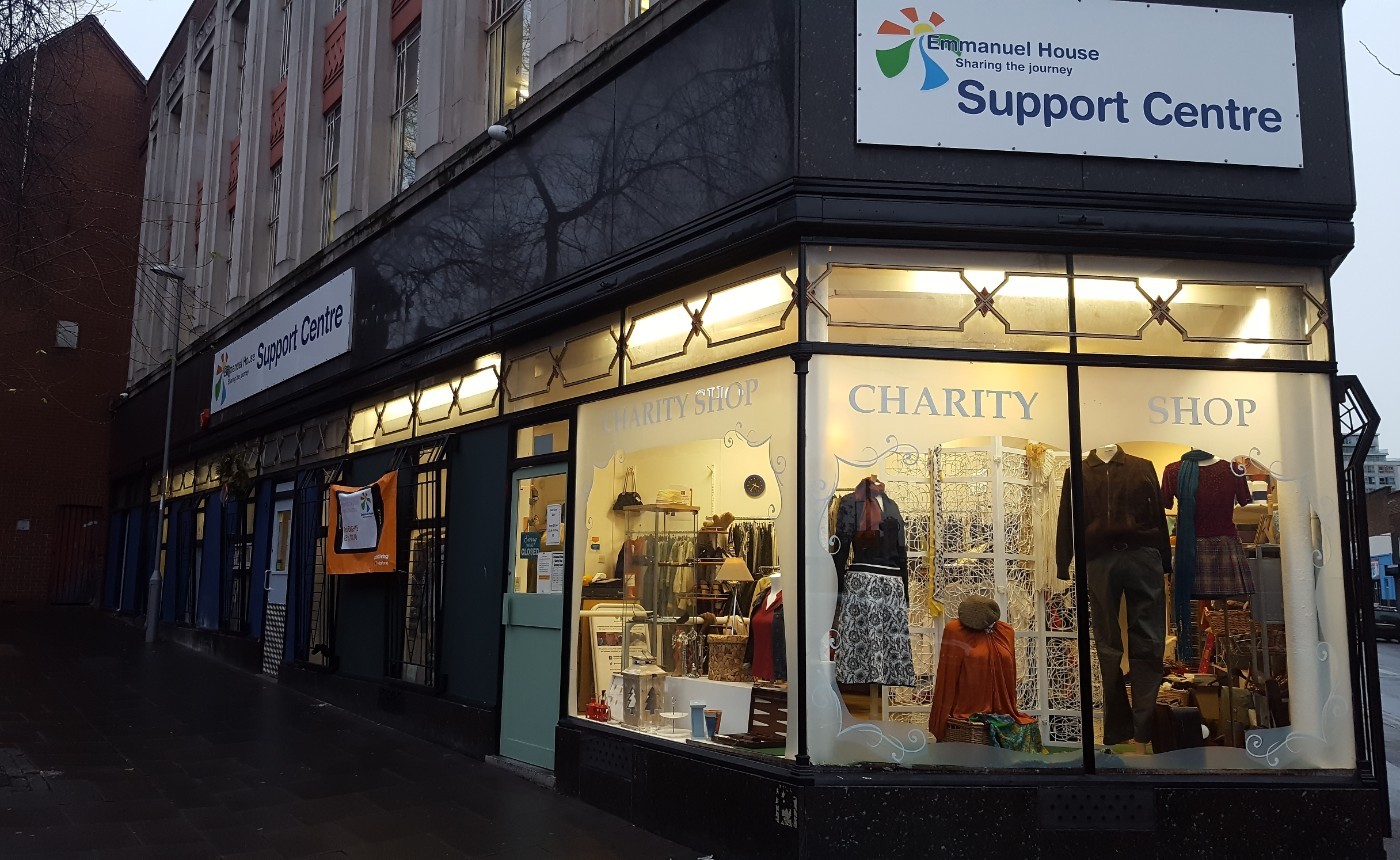After the screening of Lone, a Q&A followed with the people working at both Emmanuel House and the film, to talk about both homelessness in Nottingham and some behind the scenes secrets behind the production of the film.
The people being interviewed included Emmanuel House CEO Denis Tully, co-directors Luke Radford and Toby Curson, Emmanuel House support worker Hannah Byrne and the actress playing Gemma, Justine Emma Moore.
Why did you choose to do a film for this year’s winter appeal?
Denis: “We chose to do a film this year because it is evocative, flexible and appeals to a wider audience.
“We also wanted to show a different view on Homelessness.”
What surprised you most about working on this project?
Toby: “Working with Hannah and the case studies we picked up looking at the various stories.”
Luke: “The fantastic work Emmanuel House do.”
Was Gemma’s story told in the film real?
Hannah: “Yes, Gemma’s story is real.
“She became homeless after a breakdown with her family and a bad relationship both of which were not her fault.
“She was unsure about the situation and how to approach it, but she was introduced to Emmanuel House by another woman.
“Emmanuel House has Woman groups and we showed them because they are often not represented (They are a minority) and we wanted to highlight them.”
Luke: “Yes, we checked with the staff at Emmanuel House.”
Denis: “Several of the people in the film are real, for example Stacey (The woman who tells Gemma about Emmanuel House).
“Also there is trauma that comes with experiencing homelessness which takes time to recover from.
“The staff’s involvement helped make the film more authentic.”
How was the experience of playing Gemma?
Justine: “I just plunged right into the character.
“The film was shot chronologically so I grew up alongside her.
“My friends were present with me during filming.
“It was Anxiety inducing when filming because some people gave me looks which gave me an idea of how normal people perceive homelessness.”
How have reduced funds this year due to the COVID-19 pandemic affected Homelessness and Emmanuel House?
Denis: “At the moment, we are remaining optimistic, but we are nothing without our support.
“During the pandemic, the Government introduced the Homing in Hotels scheme to provide single rooms for rough sleepers during the pandemic which was successful.
“This made them feel more safe, helped provide support for them (50% were able to move on).
“It got particularly difficult later on when students started returning to accommodation.
“We have been able to still carry out our objective of helping people recover from and prevent falling into homelessness.
How accessible is Emmanuel House?
Hannah: “Most people find out about Emmanuel House through word of mouth, but it does come up on a Google search.
“We also have a good working relationship with the police and 138 agencies.
“We provide a safe place which is also therapeutic, gives people access to a TV and phone, provide counselling services and we check in 2 months after people have found a home to see if they are doing ok.
“We don’t have any time expectations.”
What were the difficulties you faced whilst filming?
Toby: “Filming went smoothly happening across two days.”
Luke: “We really got into the case studies (everyone was connected) and it was very documentary like.
“We approached each part of the film chronologically, so this allowed the characters to develop
Justine: “All of what you see in the film was improvised which made it feel more real.”
How did it compare to your work on Television (e.g. Soul Boy)?
Luke: “The project was less rigid compared to our TV work.”
Justine: “It felt more natural compared to working with a TV crew due to there been a stripped back crew which gave more freedom for the actors.
“I trained at TV Workshop which specialised doing improvised work so I did very well.”
All information on how to donate to Emmanuel House can be found here.
You can donate to help Emmanuel House by texting WINTER to 70450 to donate £5.
By Stuart McComb

